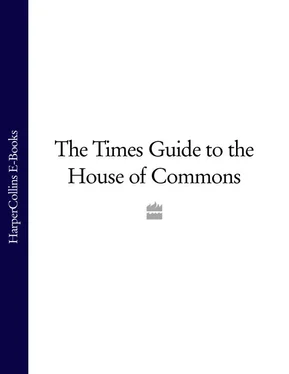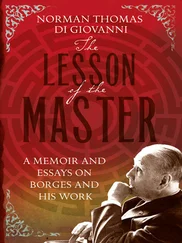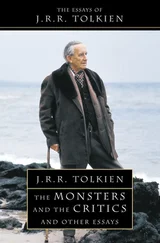Up got Roy Hattersley, then the deputy leader of the Labour Party. “What Chris ought to know,” he said, “is that we aren’t taking any prisoners.”
And so it proved. For several years I put my name down for every vacancy on the Home Affairs Select Committee, without result. My fortunes began to change only when my campaign to free the various innocent people, 18 in all, convicted of just about all the main IRA bombings of the mid-1970s, bore fruit. A cause that had once seemed eccentric and extremist was now mainstream.
Suddenly I was respectable. I could no longer be denied a place on the Home Affairs Select Committee and scarcely an eyebrow was raised when, in due course, I became chairman and later a minister. Although I never scaled the Olympian heights, I like to think that I left the odd footprint in the sand during my 23 years in Parliament.
Here, for those who come afterwards, are a few tips that they may or may not find useful.
Take Parliament seriously
Given that we struggle so hard to get ourselves elected, it never ceases to amaze me that so many colleagues disappear as soon as the final bell rings each week. If we, the elected, don’t take Parliament seriously, why should anyone else?
Never lose sight of the fact that our primary, albeit not the only, function, as Members of Parliament is to hold the executive to account for the considerable power that it wields. Something we do imperfectly. This need not consist of making brilliant speeches to an otherwise empty chamber. Well-targeted, prime-time interventions in ministerial speeches or statements are often much more effective.
Strike a balance between constituency and
parliamentary work
So far as possible it is desirable for an elected representative to share the same sunshine and the same rainfall as his or her constituents. By all means live in your constituency and make sure that you are visible, hold surgeries, open an office, attend fairs, fêtes and concerts, but not to the exclusion of an active role in Parliament.
Some of my more modern colleagues, especially those in marginal seats, take the view, for which there is little hard evidence, that they will improve their chances of re-election if they rush around pretending to be fairy godmothers to their constituents (“Hello, I am your MP. Have you got a problem that needs solving?”).
This, in my view, is a mistake. First, because it is beyond our powers to resolve the personal problems of many of our constituents and disappointment is the most likely outcome.
Secondly, because pavement politics (and I intend no disrespect) ought to be the preserve of local councillors. Thirdly, because excessive devotion to the small picture distracts from the primary function of an MP, which is to represent his or her constituents in Parliament. Please note, I am not saying neglect your constituents; only that there is a balance to be struck and that, in recent years, the pendulum has swung too far in favour of parochialism.
Put your name down for a place on a good select
committee
Preferably one that deals with issues of interest to you and your constituents. You may not be successful at first, but do persist. Having been appointed, take it seriously.
The ground rules for a successful select committee member are as follows: (a) read the brief before the meeting; (b) turn up on time; (c) keep your backside on the seat throughout the proceedings (no nipping in and out to deal with supposedly urgent messages); (d) ask concise, relevant questions; and (e) do not indulge in petty politicking – conclusions should be reached on the basis of evidence, not prejudice. Active membership of a select committee can be one of the most fulfilling aspects of life in Parliament. The chairman of a good select committee has far more influence than most junior ministers, and these days they are also paid.
Do not waste time devising lollipop questions (“Could I trouble the Prime Minister to list his five greatest achievements?”). They do not impress anyone. By all means be constructive, support the programme on which your party was elected, but that does not mean that you have to sign up to every dot and comma, every piece of stupidity or foolishness devised by your political masters.
First, of course, make representations in private, but if all else fails and you want to be taken seriously there has to be a bottom line. On occasion, it may be necessary to vote against your party and in retrospect you may be vindicated, witness the Tory poll tax rebels or the 139 Labour MPs who voted against the Iraq adventure.
Do not be in too much hurry to become a parliamentary
private secretary
By all means sign up with one of the big fish, prime minister, chancellor, home or foreign secretary, but not with one of the middle rankers. There are far too many PPSs and for the majority this will be the peak of their careers. Most do not have enough to do and while away their time hanging around the lobbies dishing out patsy questions. A sad fate for otherwise intelligent people.
Don’t be afraid of cross-party alliances
One of the pleasant surprises of election to Parliament is the discovery that on many issues there are like-minded people in other parties and an alliance is often far more effective than ploughing a lone furrow. During the course of my miscarriages of justice campaign I teamed up with a ruddy-faced Tory backwoodsman, Sir John Farr, who, once engaged, was completely fearless. I inquired if our collaboration had caused him any trouble within his own ranks. “Only with the lawyers,” he grunted, “and they’re all arseholes.”
Don’t become a rent-a-quote
Try to stick to what you know about. Those who have opinions on everything are not taken seriously, even on their own side.
If at first you don’t succeed, persist
In the land of the soundbite, he who can concentrate is king.
Never lose sight of the big picture
Most of us went into politics to make the world a better place and in the hope that we had something to contribute. Outcome, not process, is what matters.
If you get a call from a company inviting you to do a
little lobbying, put the phone down.
Finally, a piece of advice that trumps all of the above.
Make time for your family
Politics is littered with broken marriages. Don’t let yours be one of them. Quite apart from which, a little hinterland makes you a better politician.
Chris Mullin is the author of a volume of diaries, A View from the Foothills. A further volume is due in 2010.
The pleasures of opposition
Paul Goodman
Conservative MP for Wycombe 2001-2010
Iwas first elected to Parliament in 2001. I departed nine years later after a further election, disagreeing with the consensus view that the Commons should be a chamber of professional politicians. In almost a decade, I never sat to the right of the Speaker’s Chair, on the government benches. Although I served as a shadow minister for most of that period, standing down from David Cameron’s front bench of my own accord in 2009, I did not get the chance to be a real one.
So, although I am unqualified to pronounce on life as a minister I am, if not exactly an expert on opposition, at least in a position to reflect on it. Is there a point to not proposing but opposing? If so, what is it? And is it best done from the front or back benches? Indeed, what is the role of a backbencher in any event?
Читать дальше












